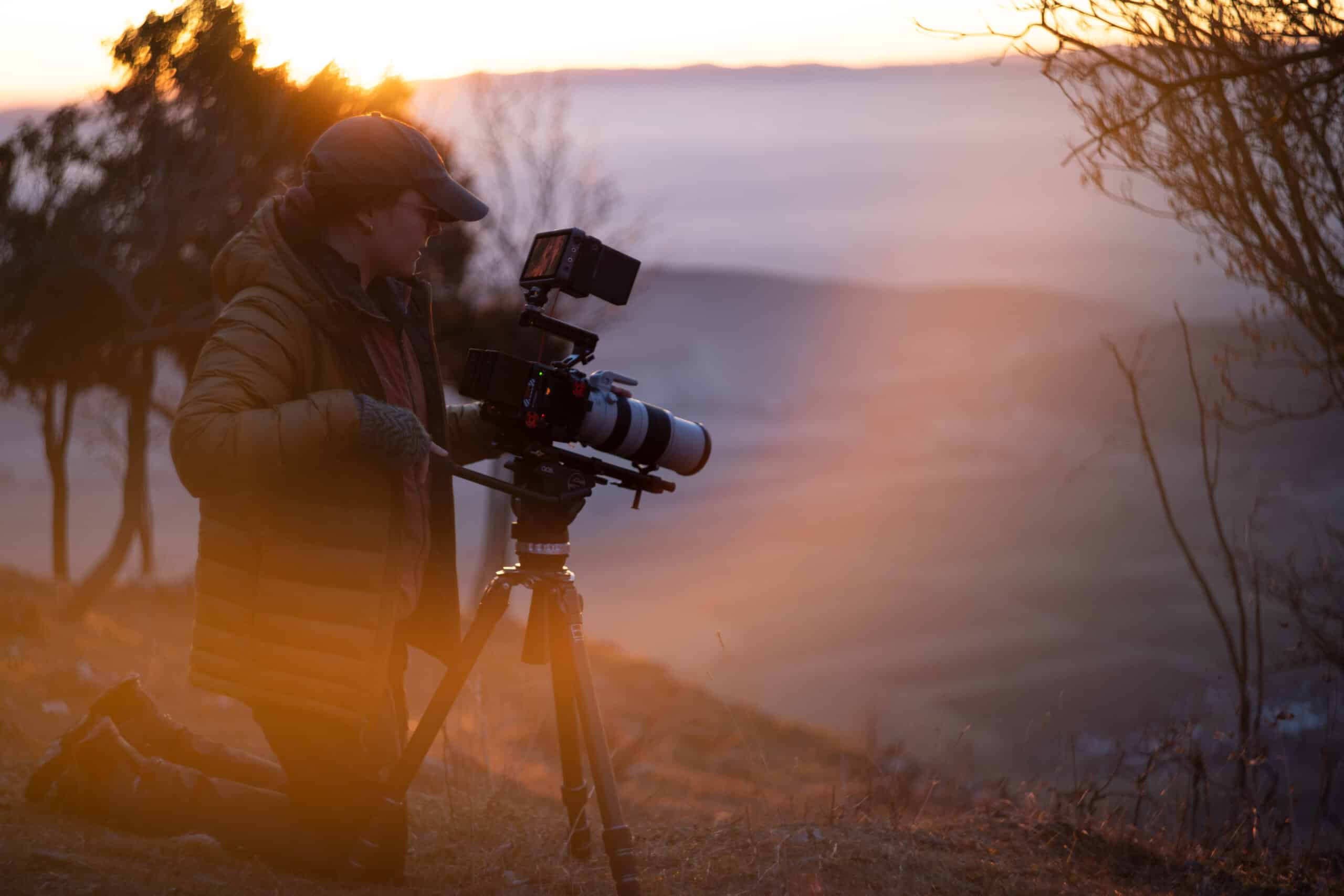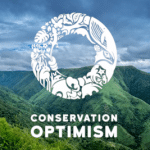Have you ever wondered how conservationists spend their days, or what keeps them optimistic about the future of nature? Do they always spend their time in the distant wild, or might they be hidden all around us? Do their roles encompass aspects we never thought of?
“Meet The Optimists” is a monthly blog series by Conservation Optimism which introduces conservationists working in different fields and contexts to our readers. We discuss their journeys into conservation, typical daily activities and reasons for hope.
Read on for the inside story on different careers and fresh approaches to conservation!
In the April 2023 blog of Conservation Optimism’s “Meet The Optimists” series, Yaz Ellis talks about her work as a wildlife filmmaker, what a typical day looks like for her, and what keeps her optimistic!
Yaz Ellis is an award-winning filmmaker and cinematographer based in Vienna, Austria. She focuses on creating films that show how wildlife is challenged by and adapting to human impact. Her latest film Beavers About Town follows a beaver family living under concrete stairs on the Danube. She and her co-director, Jack, spent 18 months filming and following the beavers throughout the seasons, observing new behaviour as they live in the city alongside humans. She was a part of the 2021 edition of the CO Good Natured Film Festival with her film Toads on the Roads and the 2022 edition with Wake Up and Smell the Flowers
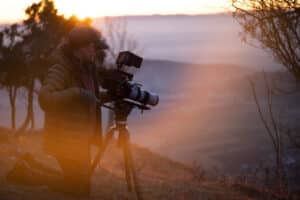
Yaz Ellis. Photo Courtesy of Jack Mifflin.
Can you trace the origins of your interest in conservation and what led to your current work?
I have always loved wildlife and animals, spending much of my life from a young age outside exploring. I was fascinated with moths, frogs and all sorts of little creatures that surround us. I knew I wanted to be a film director but didn’t put my love of nature and filmmaking together until I started studying Film at university. Since then, I have made so many films, and I haven’t looked back.
What does a typical day of work look like for you as a Wildlife Filmmaker?
I am currently working as the director of photography for Wild Vienna, a natural history documentary. So I am out filming Vienna’s wildlife as often as possible – there is a lot to be filmed! I am very lucky to be able to spend so much time filming in such a beautiful city that is home to a huge variety of wildlife. However, filming in a city with big cameras and long lenses means you often get some strange looks and lots of people asking what you are doing.
But not every day can be spent filming, the weather can be unpredictable, especially in spring, so there is also a lot of time spent indoors and a lot to do. I log footage, create sequence pulls, plan the wildlife stories and work out what shots are to be filmed in order to complete the beautiful wildlife sequences. As well as exploring, going on recces and looking for new wildlife stories and locations.
I am also currently prepping for my next film, which I will be filming in a month with co-director Jack Mifflin. We will be filming marmots in the mountains. I can’t wait! So we are currently finalising all our pre-production, shotlists and storyboards, as well as prepping all the gear and equipment. If you are interested in following our progress, you can check out our Instagrams (@_yazzellis, @_jackmifflin), and stay tuned for some marmot madness and lots of cameras.
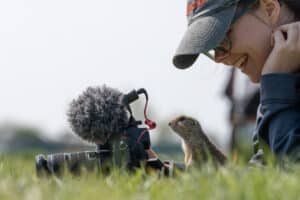
Yaz Ellis. Photo courtesy of Jack Mifflin.
What is your favourite and least favourite aspect about your role?
As a camerawoman, my favourite aspect is experiencing beautiful and jaw-dropping wildlife moments, and filming them for others to see! My least favourite moment is when you witness that behaviour, but the camera isn’t set up, or the battery dies, and you don’t see it again; that is very tough to deal with!
As a conservationist, what makes you hopeful about the future?
I think there is no other option other than to be hopeful, we have to keep fighting for our planet. If we give up hope, then we ourselves will give up, and then who will stand up for our Earth, its biodiversity and our futures…?
What helps you stay positive day-to-day?
We can coexist with wildlife, I am lucky enough that I get to see this almost every day in Vienna. Here, wildlife can thrive. The world’s most endangered hamster has a sanctuary in the city, thriving in cemeteries, parks and even some people’s gardens. Beavers were extinct in Austria in 1838. Due to re-introductions from the 1970s, Austria is now home to around 9,000 beavers and around 230 of them live in Vienna. Wildlife can survive alongside us, especially in cities, if we allow them some space.
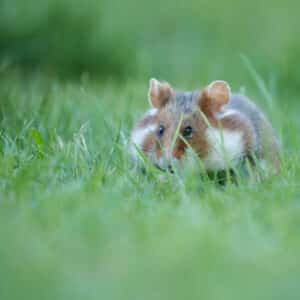
Hamster. Photo Courtesy Yaz Ellis.
Could you share a story about a formative moment in your conservation career?
Beavers About Town was a passion project that I and Jack worked on around our jobs. And we had many challenges to overcome in order to film. When we started creating the film, we faced covid curfews at the hours beavers were most active, majorly restricting our filming. We had to cycle 13 km through Vienna at 3 am in order to film at sunrise, before returning to start work for the day. We also had beavers stealing and moving our underwater GoPro, which meant unplanned dives in the Danube in order to retrieve our gear – the water was about 10 degrees Celsius at the time! But as a result of our hard work and resourcefulness, and despite not being filmed on a cine camera, Beavers About Town was the Cinematography Short-Form Winner at Jackson Wild 2022. Something I never could have imagined, let alone expected, and my proudest achievement to date.
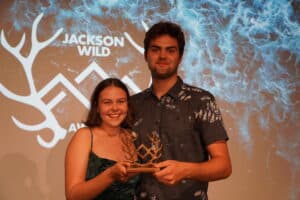
Yaz Ellis and Jack Mifflin. Photo Courtesy of Grace Bowie/Jackson Wild
Any advice for someone interested in pursuing your field of work in conservation science?
We all have to start somewhere, and the best thing you can do is to start now. If you are interested in being a filmmaker, then the best thing you can do is to make your own film. Get out there, go film something and then edit it together – even if it is terrible! You will be surprised how much you will learn and just how much you can achieve.
See more of Yaz’s work here.

